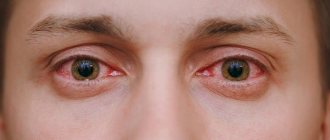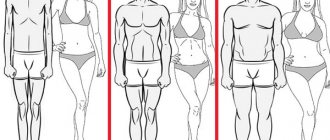If you feel dizzy and your vision is dark, then the condition of your body requires the most thorough examination. At this moment you lose control over your own body, and this can lead to unpredictable consequences. Few people can boast that they have never felt such symptoms. People who feel dizzy or have dark vision may suffer from a wide variety of diseases, so the real causes cannot be immediately reliably determined.
Causes of headaches and ear congestion
Constant pain in the head, which causes blocking of the ears, is an alarming symptom for which you should seek medical help. It may indicate physiological changes that do not require therapy, including water entering the ear canals or fatigue. However, in some cases, this sign will help identify dangerous diseases in the early stages and begin treatment on time.
High blood pressure
Chronic hypertension is a disorder in which the pressure in the arteries exceeds normal levels. In a healthy person at rest it is 120/80 mmHg, but it is important to take into account individual characteristics. Blood pressure is considered high if it is 140/90 mmHg. and more. The condition can be caused either by an increase in circulating blood volume or by vascular spasms.
Blood pressure is easy to measure yourself using a tonometer. If the readings are too high, you should seek medical help. Without timely treatment, hypertension poses a danger to the patient and can cause the following complications:
- angina pectoris - acute pain in the chest;
- myocardial infarction - a sharp disruption in the supply of oxygen to the heart muscle;
- chronic heart failure – deterioration of the heart valve apparatus caused by increased load on it;
- arrhythmia is a disturbance in the heart rhythm that can cause a heart attack.
When blood pressure rises, the patient has a headache and pressure on the ears. Symptoms such as dizziness, nausea, hearing loss and poor coordination of movements also occur. With a sudden attack, fainting is possible. Hypertension can be triggered by an increase in atmospheric pressure, physical activity, stress, disruption of the daily routine and other factors. For chronic hypertension, it is necessary to take medications in a course, including to remove excess fluid.
Inflammation of the paranasal sinuses
Sinusitis is an inflammation of the mucous membrane of the paranasal sinuses. With this disease, the nose and ears are blocked, the head hurts, and the overall body temperature rises. The process can be caused by a viral or bacterial infection, and cold weather is often the trigger. Sinusitis occurs in acute or chronic forms and may recur after some time. In addition, the disease can manifest itself as a complication of seasonal colds.
The paranasal sinuses are cavities formed by the bones of the skull. In a healthy person, they are not filled with anything, and their walls are lined with mucous membrane. During the inflammatory process, pathological contents appear in them, which causes headaches. Sinusitis can be serous (with clear liquid contents), catarrhal (cavities filled with mucus), purulent and mixed. Depending on the location of the process, there are several types of this disease:
- sinusitis - inflammation of the maxillary sinus, often occurs as a complication of a cold;
- frontal sinusitis - the process affects the frontal paranasal sinus;
- ethmoiditis - inflammation of the mucous membrane located in the ethmoid labyrinth;
- sphenoiditis - damage to the mucous membrane of the sphenoid sinus.
At home, you can conduct an initial diagnosis of sinusitis. If you sharply tilt your head forward and down, a sharp pain occurs in the forehead. This indicates fluid accumulation in the sinuses. Also, with inflammation of the maxillary sinuses, headaches intensify at low temperatures and decrease in a warm room.
Diseases of the hearing organ
If your ears are blocked due to pain in your head, you should undergo an examination by an otolaryngologist. Chronic diseases of the organ of hearing cause a sharp deterioration in health, increased body temperature, impaired balance and coordination of movements, as well as other symptoms and complications.
- Otitis is an inflammation of the ear in any of its parts. Depending on the location, they distinguish between external, middle and internal, and according to the nature of the course - acute and chronic otitis. The process can be caused by hypothermia or herbs, as well as viral and bacterial infections. Internal purulent otitis is the most dangerous because it can spread to the membranes of the brain and cause meningitis.
- Acoustic neuroma is a benign neoplasm. Its first symptoms include constant headaches and dizziness, as well as hearing loss. Over time, nausea, loss of coordination of movements, and atrophy of the masticatory muscles appear. Neuroma does not disappear on its own and may increase in size. To treat it, surgical techniques, radiation therapy, or combined methods are prescribed.
- Mechanical damage or blockage of the ear canals is another reason why headaches and blocked ears occur. You can get injured even at home, if you do not properly clean your ears or if sharp objects get into your ear canals. The cause of the blockage is often cerumen plug - after its surgical removal, headaches disappear and hearing is restored.
If you suspect a disease of the hearing organ, you must undergo an examination by an otolaryngologist. It uses a special device - an otoscope, which allows you to detect various disorders in the auditory canals. The inner ear is difficult to access for diagnosis and has a complex structure, so it is important to prevent the spread of infection from the external parts.
Other reasons
Headache and ear congestion are common symptoms for a large number of diseases and conditions. They are not necessarily related to hearing health, so it is important to pay attention to associated signs. A more detailed examination reveals the following pathologies:
- cervical osteochondrosis is a chronic disease of the spine in which blood circulation and innervation of the tissues of the head are disrupted;
- viral diseases - influenza, ARVI also manifest themselves as headaches and hearing impairment;
- consequences of traumatic brain injuries , which can manifest themselves many years later.
These symptoms can also occur in a healthy person. So, they often bother you during a flight or in other cases of changes in atmospheric pressure, when water gets into the ear canals, during fatigue or prolonged work at the monitor. However, if they occur regularly, doctors at the Clinical Brain Institute recommend undergoing an examination and determining the exact cause.
general information
It is no secret that almost all people experience dizziness from time to time.
For some it only lasts a couple of seconds, while for others it lasts longer. It should also be noted that a certain number of people complain not only that they are constantly dizzy, but that their ears are blocked, weakness - all these symptoms can appear simultaneously. It is highly recommended not to ignore these symptoms. After all, they can be caused by quite serious diseases.
Diagnostic methods
If the patient often suffers from headaches and stuffy ears, it is necessary to contact us for a full examination. A simple examination will only indicate visible deviations from the norm, therefore, to understand a more accurate picture, additional techniques are prescribed:
- tonometry – blood pressure measurement;
- MRI of the head and cervical spine is one of the most informative diagnostic methods, which will indicate hidden disorders and neoplasms;
- blood tests - prescribed to determine the causative agent of bacterial diseases, as well as to assess hormonal balance;
- additional methods for diagnosing diseases of the hearing organ, including audoscopy, smear tests, and ultrasound examination.
The Clinical Brain Institute has modern equipment for diagnosing diseases that are accompanied by headaches and ear congestion. Here you can quickly and accurately determine the underlying disease that causes deterioration in well-being.
Associated symptoms
Since it is unclear why the vision darkened and why the head began to spin, the first thing you should do is consult a therapist. After reviewing your tests, he will discard some options and refer the patient to a more specialized specialist who will accurately determine your problem.
But not in all cases of dizziness you need to immediately rush to the doctor. Sometimes dizziness occurs during normal motion sickness, which is not a symptom of the disease. For example, this applies to rides on attractions, travel by transport, etc.
In this case, dizziness (orthostatic hypotension) means that the vestibular apparatus has stopped working normally for some time. But if your head begins to feel dizzy often and there seem to be no objective reasons for this, then this may indicate a more serious problem.
The vessels of the brain cannot cope with the supply of the required amount of blood, the brain does not have enough oxygen and other nutrients for normal functioning, and thus it sends signals about oxygen starvation. After all, many processes of maintaining the vital functions of the whole organism depend on this.
Dizziness is not a separate problem; it includes several symptoms:
- The appearance of fog before the eyes or sudden darkening. This is due to a lack of vascular nutrition in the eyeball or a sharp outflow of blood from the head.
- A drop in pressure in blood vessels throughout the body.
- Nausea. To digest food, the maximum possible amount of blood flows to the stomach, so insufficient filling of the stomach vessels causes nausea.
- Pawns ears. The eardrum also contains a network of tiny blood vessels that allow us to hear, and they require nutrition.
- Headache. Insufficient brain nutrition is the worst thing that can happen, so the body sends the strongest signal - pain.
- Pre-fainting state.
Dizziness can occur in a variety of situations. It can last from a few seconds to several minutes. In some cases, the attack of dizziness will be much longer.
The easiest option is when getting up from a horizontal position. If you do this abruptly, you will feel dizzy for a few seconds, your vision will darken, and your ears will become stuffy. For people unaccustomed to physical activity, physical exercise performed immediately after waking up can become a critical point. For example, bending or turning the body.
The simplest emotions can also make your eyes darken. Any stress or even slight anxiety can lead to dizziness. At such moments, a portion of adrenaline enters the blood and the blood vessels automatically constrict, so blood circulation slows down, pressure drops sharply and brain nutrition decreases.
Treatment of headaches and ear congestion
Treatment tactics are selected individually, depending on the cause of the headache and ear congestion, as well as the patient’s age, concomitant diseases and other factors. To eliminate both the root cause and symptoms of diseases, the following methods can be proposed:
- antibiotic therapy is the main stage in the treatment of bacterial inflammatory processes, as well as the prevention of purulent complications;
- symptomatic treatment , which includes anti-inflammatory, painkillers, ear drops;
- surgical methods - necessary to remove sulfur plugs, neoplasms, as well as to extract the contents of the paranasal sinuses for sinusitis;
- physiotherapy – prescribed for chronic ENT diseases.
Doctors at the Clinical Institute of the Brain prescribe a minimum of therapeutic techniques that will bring maximum results. Here are specialists of a wide and narrow profile with many years of experience in treating various diseases that manifest themselves as headaches and hearing impairment.
Treatment recommendations
If the cause is vegetative-vascular dystonia (VSD), then first of all you should take a course of restorative vitamins. Next, after consultation with specialists, it is worth treating the immune and nervous systems. Physiotherapy is also recommended. During VSD, special attention should be paid to monitoring your blood pressure.
Osteoporosis is bone fragility that leads to hernias and cartilage damage. To prevent osteoporosis, you need to give up alcohol and smoking, lead a healthy lifestyle and exercise.
All other causes of dizziness require mandatory consultation with specialists and strict adherence to their recommendations. Most likely, you will have to undergo a large examination to determine the real causes of dizziness. You should not try to cure the pathological condition on your own; the information is given so that you can distinguish ordinary minor discomfort from a serious illness and consult a doctor in time. If detected at an early stage, the disease is usually easily treated, but if it is neglected, it can even lead to death.
Prevention methods
At home, you should follow simple recommendations from doctors. They will help prevent the development of diseases that cause headaches, ear congestion and general deterioration in well-being. The set of preventive measures includes:
- protection of the head and ears from hypothermia;
- proper nutrition with enough vitamins at any time of the year;
- timely treatment of colds.
The Clinical Brain Institute offers all the conditions for high-quality and comfortable treatment of disorders that cause headaches and ear congestion. There is also timely equipment located here, thanks to which you can quickly and accurately determine the cause of poor health and make an accurate diagnosis.
Clinical Brain Institute Rating: 5/5 — 4 votes
Share article on social networks
Causes of dizziness
There are a variety of causes that cause dizziness. The most common of them are the following:
- Adrenalin. The level of adrenaline in the blood increases greatly when a person experiences stress or sudden strong exertion. This also includes abruptly getting out of bed, etc. For example, speaking in front of large crowds of people, explaining feelings, etc.
- Height. If your ears are blocked, it is likely that you spent a lot of time at altitude. This causes a violation of self-awareness in space, and in some cases a surge of adrenaline (fear of heights).
- Diets. The main nutrient for the body after oxygen is glucose. While maintaining a diet, the amount of glucose drops significantly, and it is not enough to power all processes in the body. Of course, some nutrients are drawn from fat deposits (for which, in fact, the diet is started), but this is done very slowly and does not provide a constant flow of glucose in the required quantity.
- Exercise and other physical exercises. If you are not physically trained enough, you cannot rush into the maelstrom of training. Sudden movements and heavy loads will certainly cause dizziness, darkening of the eyes and blocked ears. Therefore, you need to start with light, short exercises and only then gradually increase the load.
- Long focusing of the gaze. If you look at something at a very close distance for a long time, this will cause overwork of the eye muscles and a lack of blood supply to the eyeball. The stress of looking at distant objects has a similar effect. It is imperative to take periods of rest for the eyes.
- Drug treatment. Since medications very often cause a forced change in a certain situation, the body can resist this. For example, this effect is caused by strong tranquilizers, antiseptics and a number of antibiotics.








